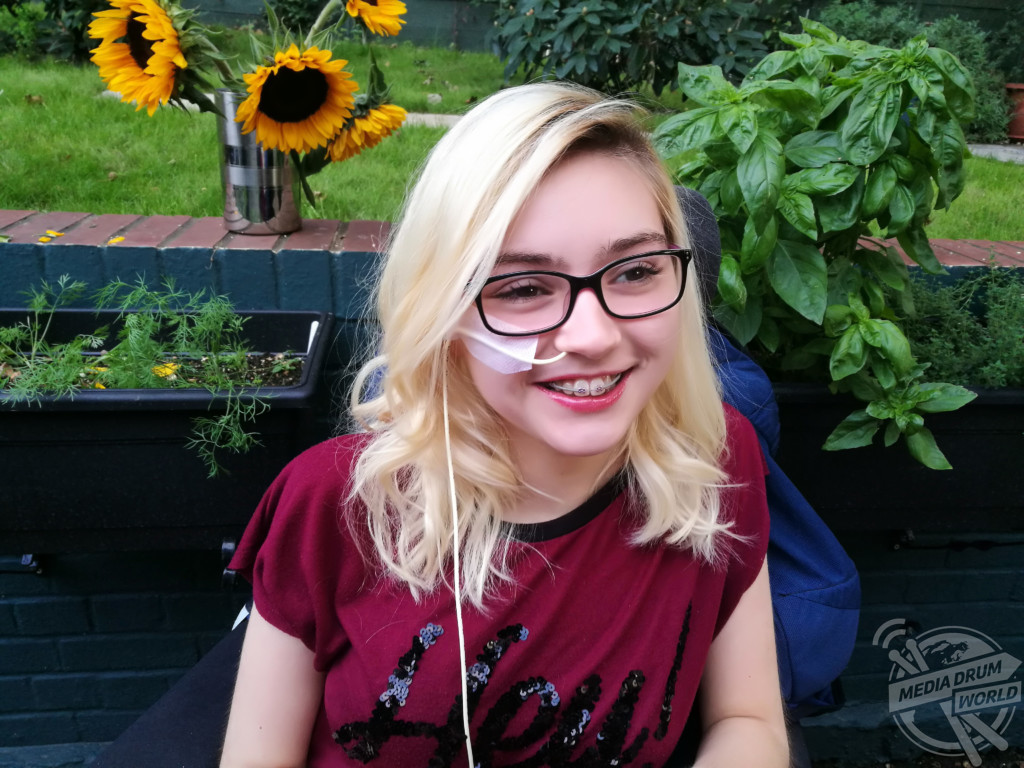
By Rebecca Drew
THIS BRITISH teenager isn’t letting the progressive muscle weakness she was born with stop her from living life and has been using Instagram as a platform to break the stigma surrounding disabilities and is fed up of strangers assuming that because she is in a wheelchair, she doesn’t have a brain.
Sophie Anderson (13) from Surrey, United Kingdom, was first diagnosed with Spinal Muscular Atrophy Type Two (SMA) when she was 12-months-old after her parents, Veronika and Richard, noticed that she only cried when someone tried to stand her up. When her younger sister, Grace (11), started to hit her milestones quicker than Sophie, doctors ran blood tests and a muscle biopsy that confirmed she had a type of SMA.

MDWfeatures / Sophie Anderson
SMA is a rare genetic neuro-muscular condition which causes all muscles in the body to deteriorate over time and for Sophie, it means that she is unable to walk, stand, sit unaided, move her legs, lift her arms, hold up her head and she gets fatigued quickly.
It wasn’t until Sophie started school that she realised that not everyone was accepting of her disability as her peers would poke fun out of her wheelchair which chipped away at her confidence. This changed when she was 11-years-old and moved to a school for disabled children where she made lots of friends who understood what she was going through and gave her the confidence to embrace who she is.
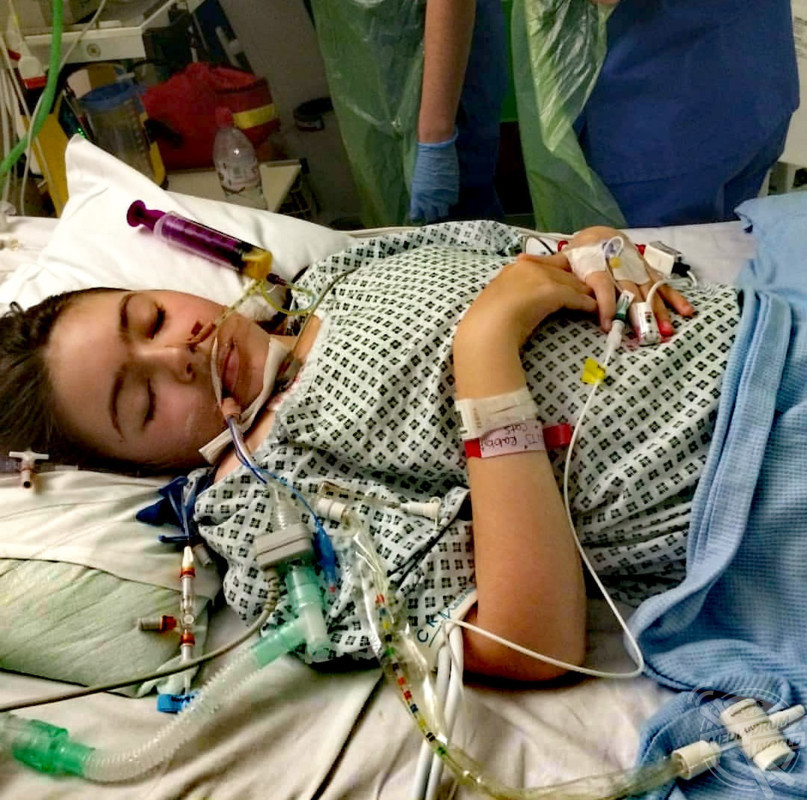
MDWfeatures / Sophie Anderson
Sophie’s condition causes her constant pain for which she takes six pain killers a day. As well as this, she has had more than 350 hospital appointments, 100 x-rays and eight surgeries, including one to correct her scoliosis which had previously crushed her lungs and made it difficult for her to breathe.
In 2018, the teenager started her blog, @wheelchair_dontcare, to inspire others to follow their dreams no matter what and to help break the stigma that still surrounds disabilities. Sophie says that many people see her wheelchair first and her second, assume that she isn’t capable of speaking for herself and patronise her by tapping her on the head or talking to her through her friends and family instead of treating her like a normal person.
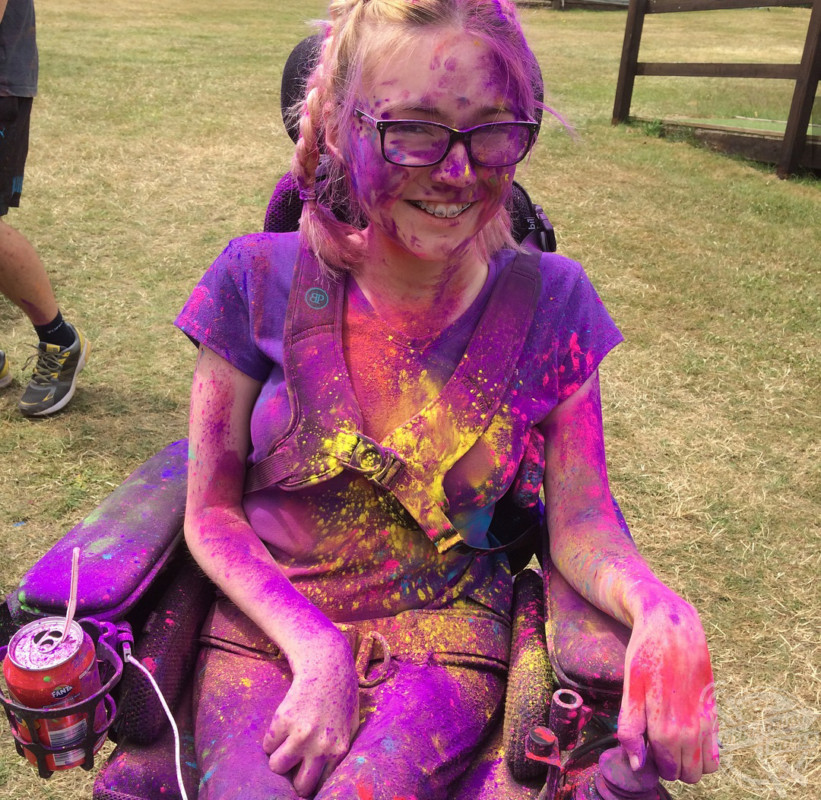
MDWfeatures / Sophie Anderson
“My family were aware something was wrong quite soon after I was born. I never cried, unless someone tried to stand me up. Then my younger sister started to progress quicker than I was, so we started to look into it,” said Sophie.
“Everyone just told my parents I might just start walking a bit late, but then, after many blood tests, debates, meetings and a misdiagnosis, my faulty genes were eventually confirmed after a muscle biopsy.
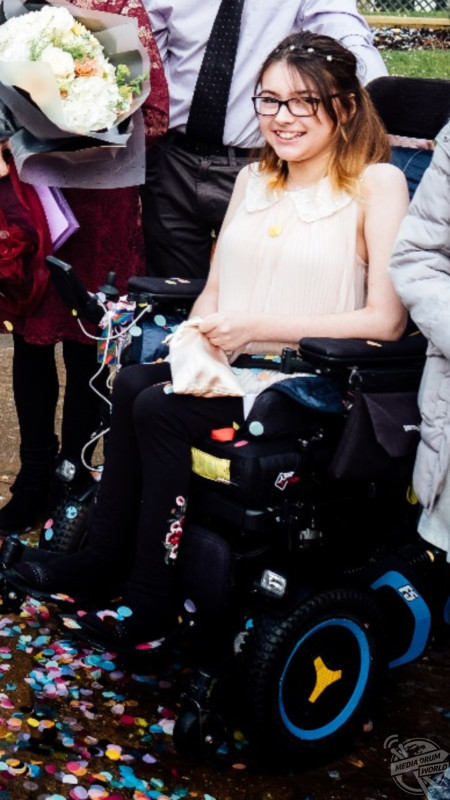
MDWfeatures / Sophie Anderson
“SMA can affect everyone differently, but for me, it has made me unable to walk, stand, sit unsupported, move my legs, lift my arms, hold up my head and get fatigued quickly.
“SMA pretty much affects everything I do like getting in and out of bed because I can’t sit up by myself or move my legs, which makes it pretty impossible to get dressed and undressed. Going on public transport because most buses, trains and taxis don’t have ramps which makes it difficult to get on.
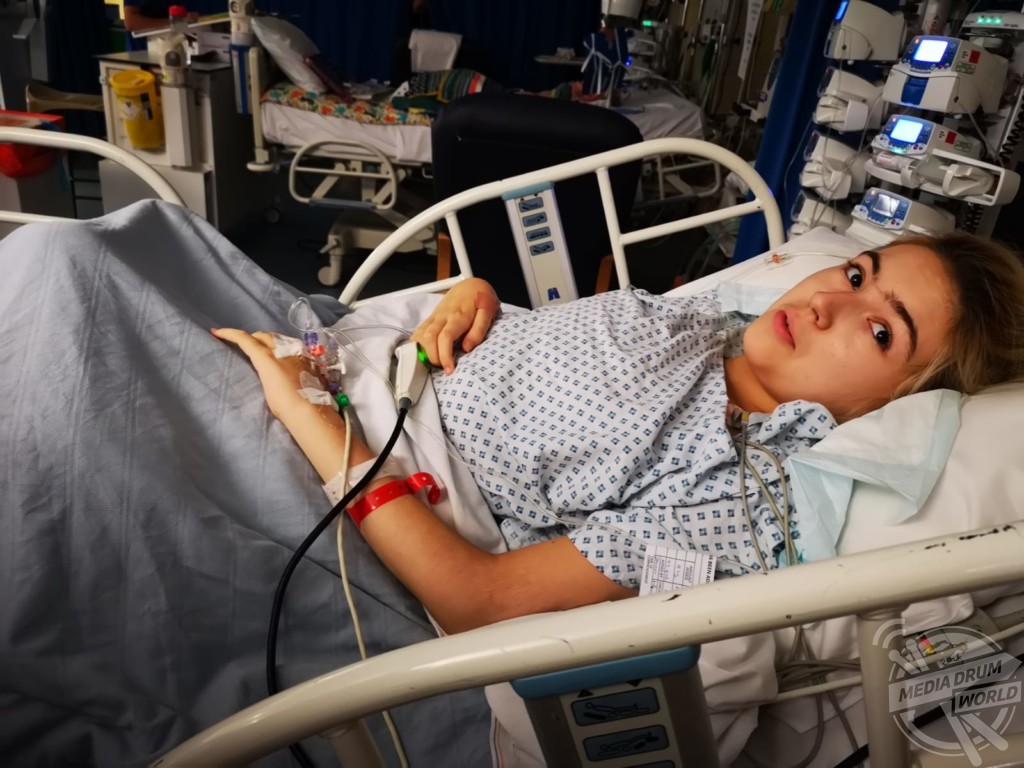
MDWfeatures / Sophie Anderson
“Going to places with steps is hard because my chair can’t exactly climb stairs, although that would be handy, cooking food because my arms are too weak to lift frying pans and pots and stuff, so someone else has to do it for me.
“Talking, eating and swallowing and holding up my head because if I’ve had a particularly long day, I get very fatigued, and that sometimes makes it difficult for me to use my neck, face and throat muscles.
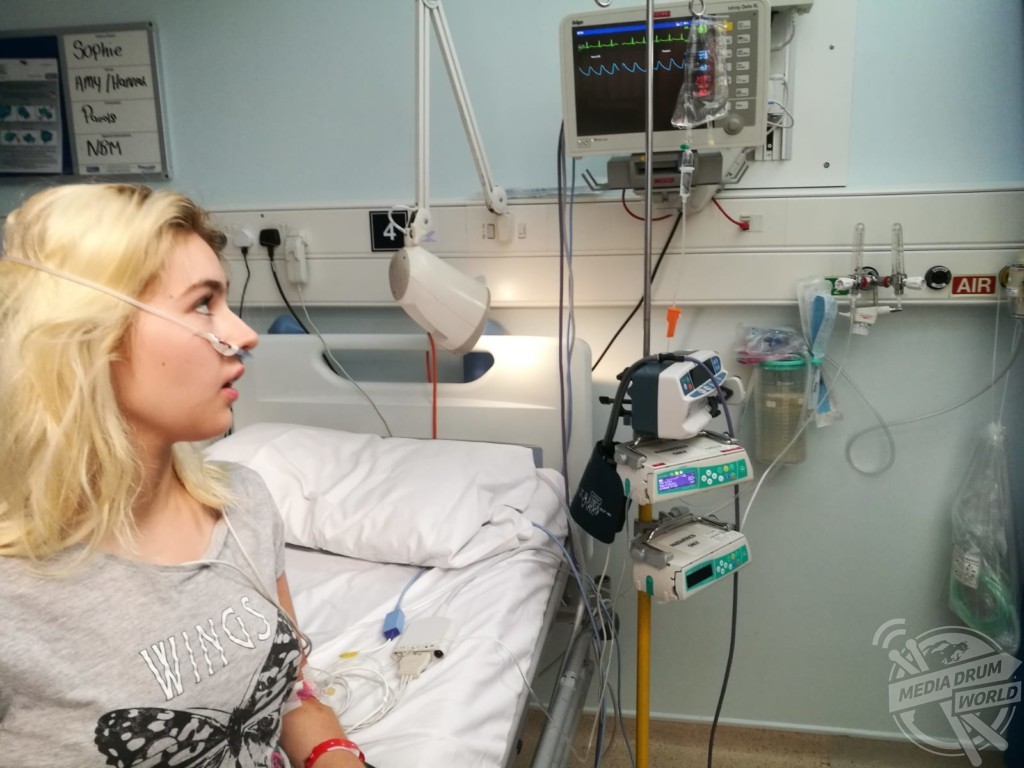
MDWfeatures / Sophie Anderson
“It affects so much more than you think it would though. Even the little things like pouring yourself a drink, scratching that itch, hugging your friend, decorating your house for Christmas, cycling to school, being able to move if you’re in pain.
“People always take these things for granted, and they don’t realise that there are lots of people around the world who would give anything to have the same experiences.”

MDWfeatures / Sophie Anderson
There are several different types of SMA, which start at different ages and some can cause more serious problems than others.
Type one develops in babies less than six-months-old and is the most severe, type two develops in babies who are seven to 18-months old and is less severe than type one, type three develops after 18-months and is the least severe type and type four affects adults and only usually causes mild problems.
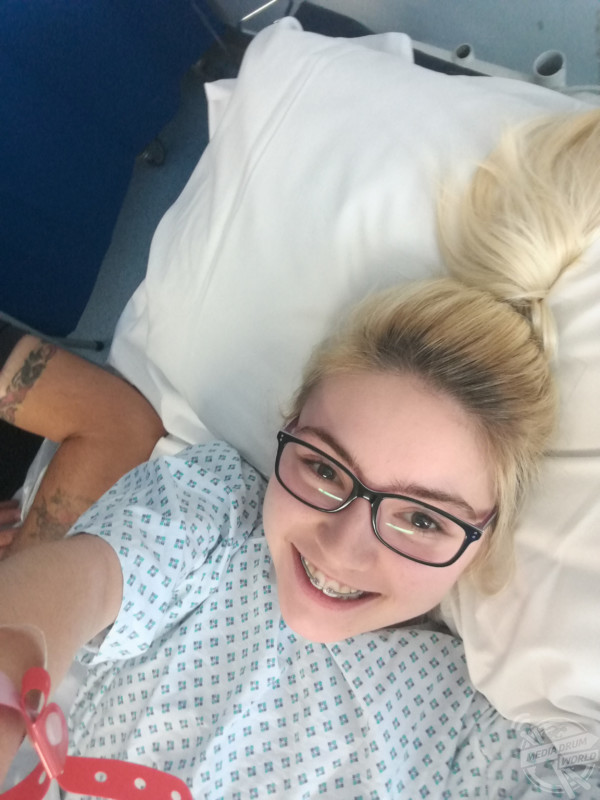
MDWfeatures / Sophie Anderson
Sophie credits her naturally positive outlook on life for helping her manage her disability and wishes that she never spent time worrying over what other people think of her.
“If I could go back and change one thing about my past, it would be worrying about what other people think of me. But, since there is no such thing as time travel, that is the main message I would want to convey to others under similar circumstances,” she said.
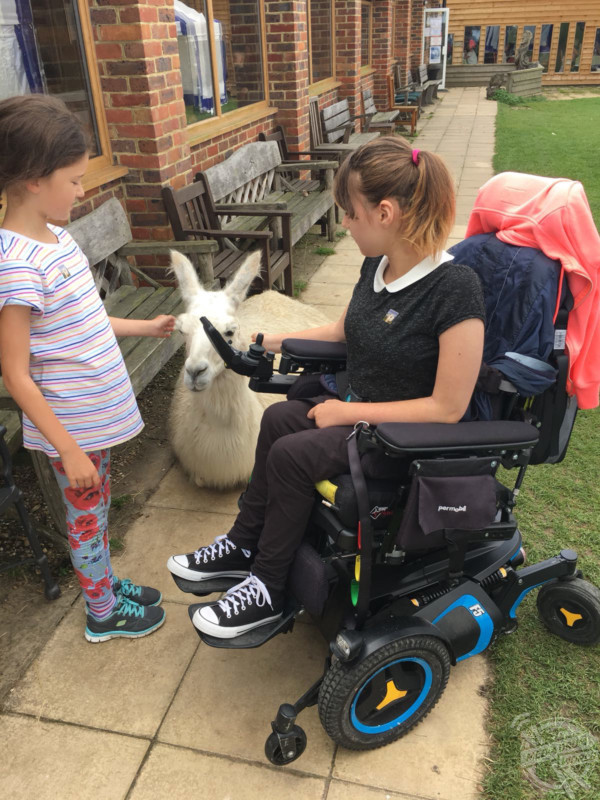
MDWfeatures / Sophie Anderson
“Never worry about what others think, your life is yours nobody else’s, so live it how you want to, not how you think others want you to. Remember the saying; ‘those who mind, don’t matter, and those who matter, don’t mind,’ that’s something I’ve recently tried to live by, and I think it would be so great for others to think about that once in a while too.
“I started my blog to spread awareness about different disabilities, as well as my own, to share my story and to hopefully inspire people to follow their dreams, no matter what obstacles are in the way, whether it’s a disability, low self-esteem, or anything.

MDWfeatures / Sophie Anderson
“Amongst the tremendous amount of support and encouragement I’ve received since I’ve started my blog, I’ve also had many people say they really relate to what I write about.
“I chose to go against Instagram’s pretty, picture perfect posts, and give people the raw reality of my life, which I hope people around the world going through the same things as me can connect with.
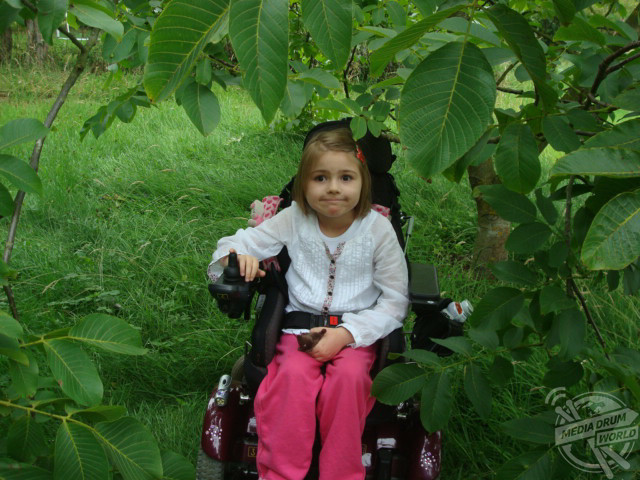
MDWfeatures / Sophie Anderson
“Positivity is just a thing that comes naturally to me. For me, difficult times seem to become a lot easier if you can have a laugh. I try to look for the positive side of things, rather than the bad.”
Sophie has been in a wheelchair since she was 12-months-old and learnt to drive it in a car park with her dad, becoming the youngest child to drive a power chair.

MDWfeatures / Sophie Anderson
As well as blogging, Sophie hopes to go to university and dreams of competing in the Paralympics in boccia, a sport that is related to bowls and designed for disabled people.
Finally, Sophie described how she deals with misconceptions that people have about her disability.
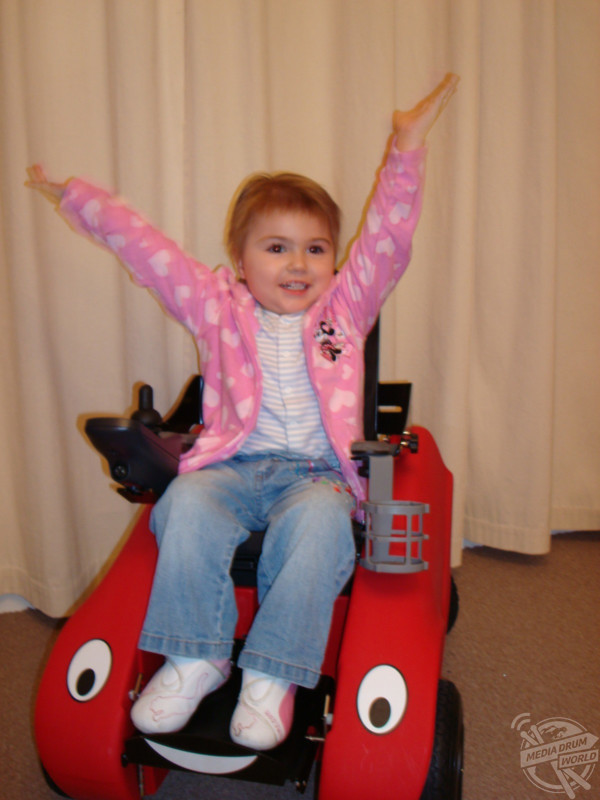
MDWfeatures / Sophie Anderson
“I think one of the worst misconceptions people have about others with a disability is that we have no brain or feelings. Many people speak with a patronising tone of voice, very loudly, slowly and simplified,” she added.
“Some people even bend down to my height or pat me on the head. People also used to ask my family and friends questions about me, instead of just asking me, for example, they ask, ‘why is she in a wheelchair?’
“The simple answer to that is always, ‘why don’t you actually ask her instead?’.
“I used to just get on with it, and try to ignore it, but now I find that it’s a lot more useful if I just let them know that it’s ok to talk to me like a normal person.”

MDWfeatures / Sophie Anderson
Sophie is currently fundraising for a Spinraza injection which would stop the deterioration and enable her to gain back certain functions she’s lost. Sophie hopes to raise £500,000 for the first injection, and you can donate to her GoFundMe by visiting: https://www.gofundme.com/help-raise-money-to-cure-my-disability
For more information see www.instagram.com/wheelchair_dontcare






